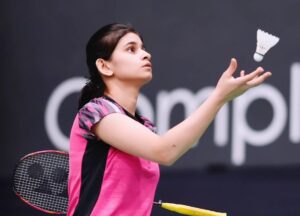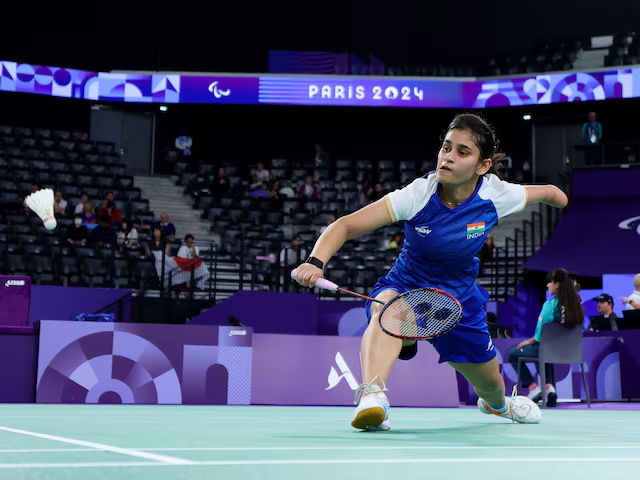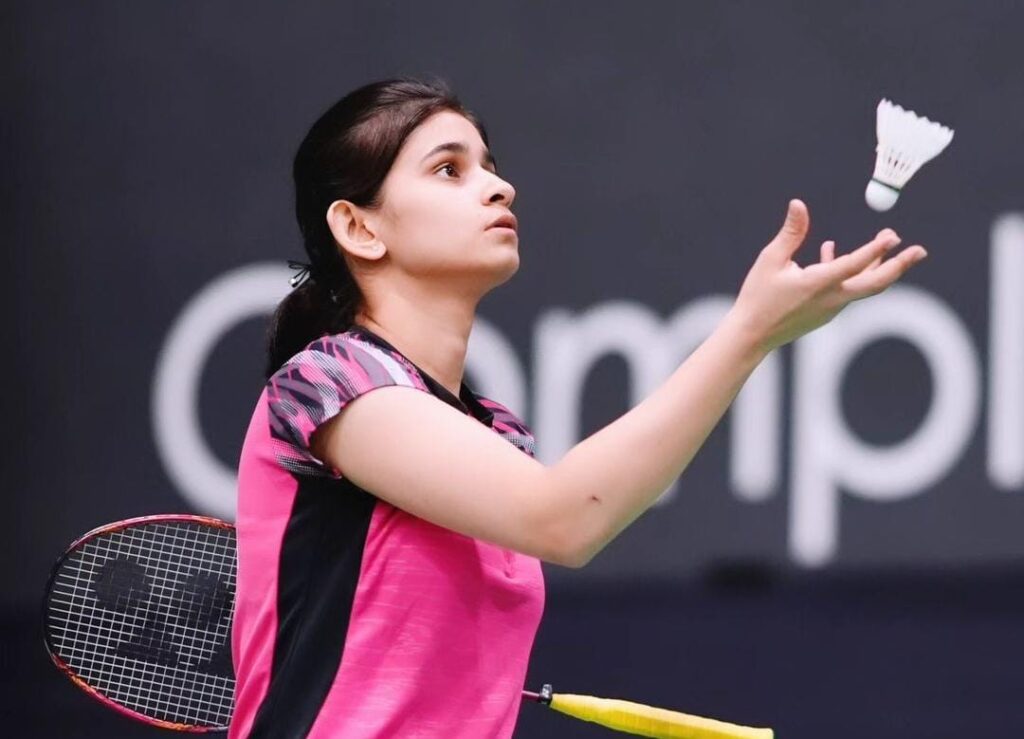
A few weeks ago, para-athlete Palak Kohli won six medals—two gold, two silver, and two bronze—across singles, doubles, and mixed doubles at the Spanish Para-Badminton International Level 1 and 2 tournaments. In a candid chat with RevSportz, the affable shuttler reflects on her journey—from taking up badminton to overcoming a bone tumour in her ankle and competing in two Paralympics. She also clinched bronze at the 2024 World Championships in Pattaya. Looking ahead, she is set to compete in the BWF Para-Badminton World Championships in France this August and the 2026 Para Asian Games.
Q: Can you elaborate on your outstanding performance in Spain, where you won six medals—two gold, two silver, and two bronze—while competing in back-to-back events?
A: I think the entire month has been (about) back-to-back tournaments. Being there in Spain; the first event we had in Victoria and second in Toledo. And then coming back to India, immediately, we had Khelo India Para Games.
So, it was a little hectic. It was challenging physically, mentally, everything. But I’m happy that I was able to perform good. And in the Spanish events, in level one, I played all three finals, in all three categories of the event, which was good. I finished with one gold and two silvers over there, and in level two, I finished with one gold and two bronze medals. Then coming back to India and being the Khelo India Para champion.
I think it has been tough weeks of continuous tournaments; playing three events and both the international tournaments have been something that has been very hectic for me, and it was my first event post-injury.
Q: How have your preparations been for these events?
I think the preparations have always been good, for all the events that we plan to participate in. We have our same training resume. There was a temperature difference, that it was colder over there in Spain. Then coming back to India in Delhi in the summer conditions, so it’s a mixture of weather conditions. When you go to international tournaments, there’s a lot of things that you miss in your nutrition and food, being a vegetarian as well which is challenging.
Sometimes, before going on to the court, you’re feeling very good. But sometimes, the opposite also happens during your warm-ups, you’re not that much confident how the game will go, how your body will react, and how your reach will work out. Sometimes, it also happens like when you are playing three finals, the first match doesn’t go the way you want it to, you have to recover, you have to quickly adapt to the situations, you have to quickly change your mind and forget about what has happened and to focus on the next match. It’s (a learning process) and it’s interesting. Sometimes, it’s tough to deal mentally but I think as soon as we accept it, we are able to perform better. So, I think it’s a rollercoaster of emotions and everything.
Q: You were the youngest Paralympian in your sport at the Tokyo Paralympics. What was that experience like?
A: I think playing over there in the Tokyo Paralympics was definitely a feeling of happiness and a lot of excitement because para-badminton became part of Paralympics for the very first time in Tokyo. We all know that in para-badminton, we don’t have any age category. So, it has been lots of tournaments with a lot of experience and playing with athletes who are much elder than you, much more experienced than you. There were athletes who were playing the sport even before I was born. So, playing the event, gaining experience, many learnings from your elders and all around the sports arena… I think it was the best feeling. And finishing fourth in the mixed doubles, we lost that medal by a whisker.
I still remember it and the court where we played and how the atmosphere was and everything. But I think we need to forget about the losses and then again restart from zero and focus on new targets.
Q: How did you qualify for the Tokyo Paralympics?
A: Before the Tokyo Paralympics, I played my very first nationals in 2019, in Uttarakhand, where I became the national champion in girls singles and women’s doubles, and we were runners-up in mixed doubles. So, after that, I started my journey of (playing) international tournaments.
At that moment, I didn’t have any sponsors and there were a series of events for qualification for the Tokyo Paralympics. And at that moment, I missed a lot of tournaments because European countries’ tournaments were too expensive and it was too difficult to go to those tournaments. The flight fares and everything is very high.
So, God made a plan for me which tournaments you’ll be going and which you will be skipping, and I got supported by Welspun at that moment, so we could plan which events to play. At the beginning of the year, I had no world ranking. We played tournaments and we qualified in women’s doubles. By the end of the cycle, we had 13 international tournaments to qualify for the Tokyo Paralympics, out of which the top six would be counted.
We became world number five in the race to the Paralympics rankings. Eventually with that, I automatically got my singles (qualification). Later, with the slot, I got an opportunity to play mixed doubles as well.
For the Latest Sports News: Follow RevSportz

Q: You also had to recover from a bone tumour in your ankle. Can you share what that phase was like, both physically and mentally?
A: During the Tokyo Paralympics, and before that also, there was pain in my leg. We were already working on it by taking tests, working and pushing myself for three events which also was very tough. After the Tokyo Paralympics, we had Asian para-youth games in 2021 in Bahrain, where I won triple medals with one gold and two bronze medals.
When everything was going well and I was into training, suddenly we saw blood reports and certain parameters which were very high. I was suffering through the pain and other stuff and we went through the proper diagnosis. We visited multiple good doctors, orthopedics and other doctors in our country, and we got to know it was a bone tumor. We had to go for surgery. So, it’s been a very tough period because (at) that moment I was shattered.
I didn’t know what life was next for me and even the doctors could not assure me whether I would be able to make a comeback to a normal lifestyle or not. And to that of whether I will be able to play badminton because badminton requires a lot of agility, a lot of strength, stamina, lower-body endurance and everything. We need a lot of movements, a lot of speed, and reach as well. I think that was the moment when I had to be mentally very strong and there were days where I doubted after the surgery
For a few months, when I could not step down from my bed, that would give me a little doubt in myself – till now I have not even started walking properly. How can I make a comeback to the elite level of the sport? It was tough, it was challenging. It was both physically, mentally. But I feel happy to have overcome those challenges, to make a comeback after one-and-a-half-year.
Q: How and when did you take up badminton as a sport?
A: Actually, badminton just came into my life as a blessing. I never thought I would be playing any sport professionally in my life because I was born with a disability in my hand. And in my family, I didn’t know that I had a disability. Everybody used to take care of me. I got to know when I stepped outside my home. We started going to school and meeting people in the society, in parks and everywhere. When in India, we have people looking up at you and just being curious to ask all sorts of things – whether it is accidental, how did this happen? So, I never thought of playing sports professionally.
It was a coincidence that I met Gaurav sir (Khanna), in the mall, in 2017. And when I first got to know what para-badminton is, at that moment I didn’t know that he’s the national head coach of the Indian para-badminton team. Now he’s a Dronacharya and Padma Shri awardee as well.
Later, when I had some incident in my school where I was taken out from a handball trial and when I was told to concentrate more on studies, I thought I need to change this and let me try that sport, (badminton). So that was the moment I thought I wanted to start with badminton. I went back and told my parents I want to start with badminton. We tried to contact sir, then father got to talk to him. Then he made a plan for me to come to Lucknow. I shifted to Lucknow in 2018 and that is where I started up with my journey of holding a racquet.
Q: How was your support system, particularly your parents’ encouragement?
A: Yes, my parents have always been very supportive. I have a joint family, and everyone has supported whatever I wanted to do. They always had open doors for that. When I told them I want to start with this sport, in the initial stage, they didn’t take that seriously because they thought – ek do din ka baad, yeh khatam ho jayenga (her interest for this sport will end in a day or two)
When I kept insisting on them, and when my father again had a talk with sir, they supported me, they didn’t even have a second thought. He immediately sent me to Lucknow. The very next weekend, we planned to come to Lucknow. Entering into the arena, where all para-athletes were training from different states with different disabilities gave me goosebumps – if they can do it, I can also do that. So, I think that was a major turning point in my life where my priorities got changed and everything got changed.
Q: Any words of encouragement for budding para-athletes?
A: To all the aspiring para-athletes, especially the girls, believe in yourself. If I can overcome challenges, so can you. It’s all about breaking the limits we set in our minds. Stay confident, pursue your dreams, and remember, the opportunities are endless when you truly believe in yourself. Everything will fall into place.
Q: How is Palak Kohli outside of badminton? Any hobbies?
A: Outside of badminton, I have hobbies of doing something creative, with arts and crafts, organising my things. I want myself to be surrounded by small things and just doing small things that make me happy. Listening to songs, enjoying that vibe.
Q: A few words on Welspun, which has supported you over a period of time?
Welspun has always been a great pillar of my support. In 2019, in my initial stages, when I was in my journey to qualify for the Tokyo Para-Olympic Games, they started supporting me. They have not only been supporting me in my sporting career, but also in my education and other aspects.
The best thing about them is that in 2022 when I was diagnosed with bone tumor and when a lot of people doubted whether Palak will be able to make a comeback or not, Welspun was there as one of the strongest pillars to support me and they never had any doubt. They were always supporting me on my rehab activities, on my strength and conditioning, and everything that could help me to recover faster. I feel myself to be blessed to be a part of such a foundation which is supporting all the female athletes and to all the females across various fields.




